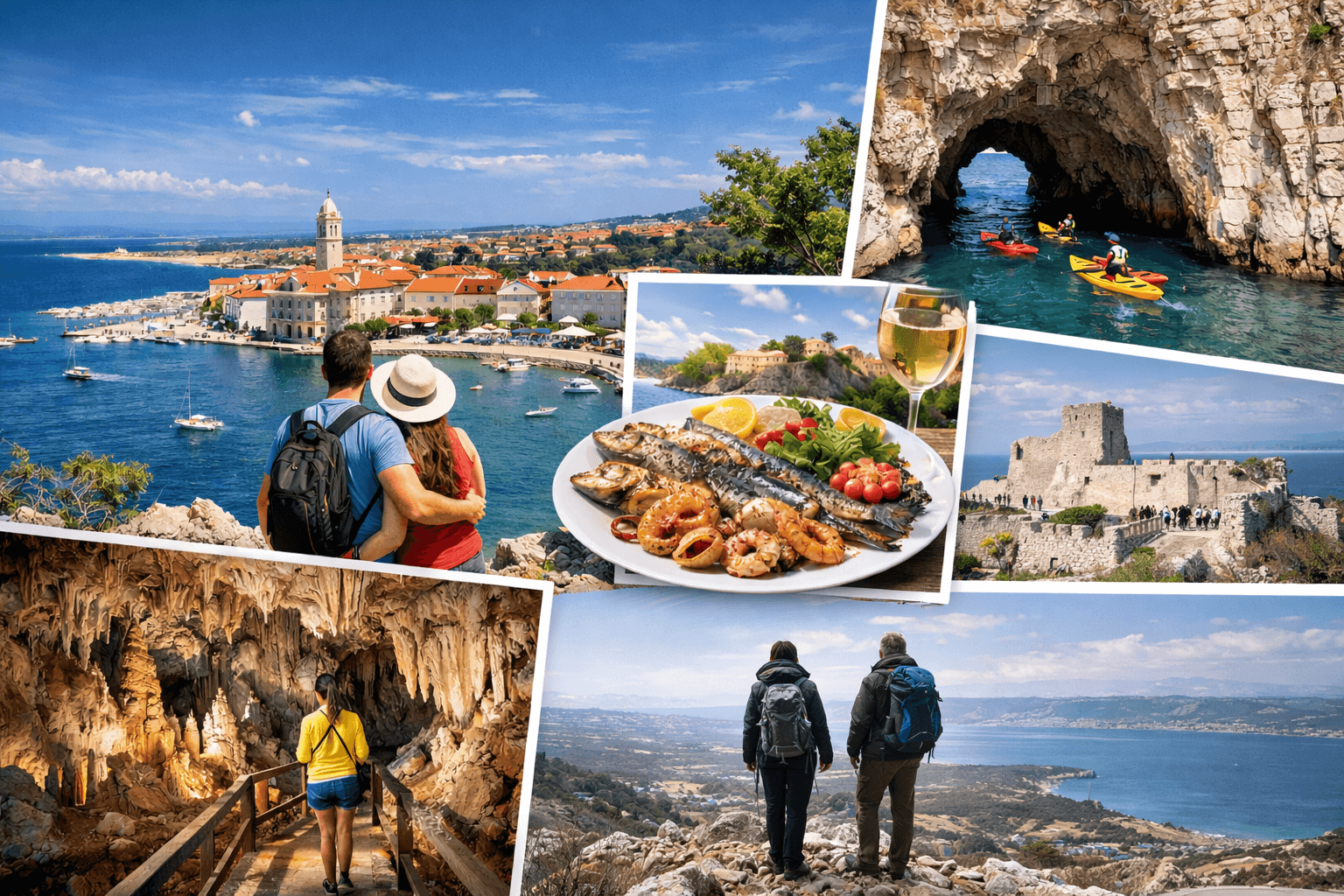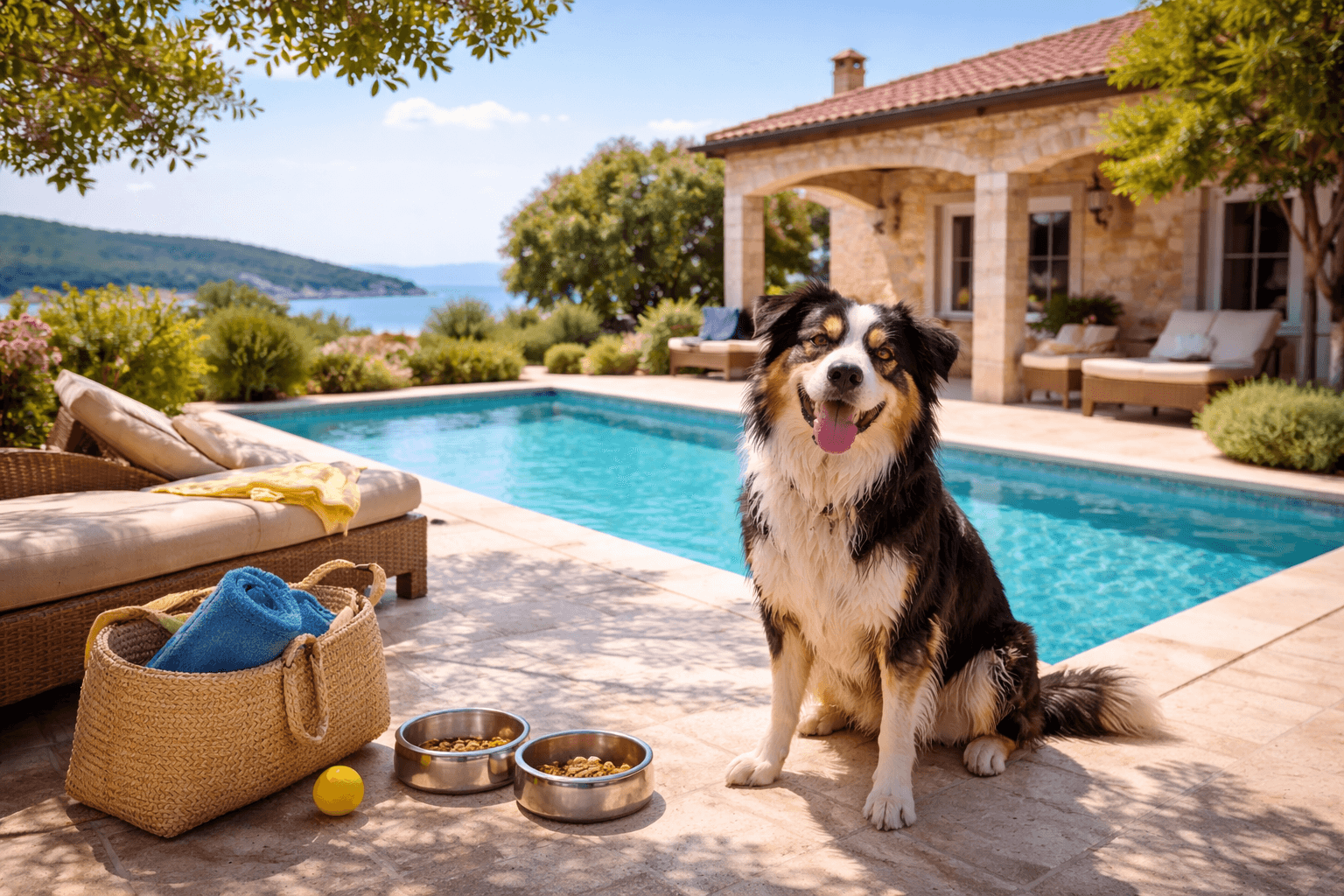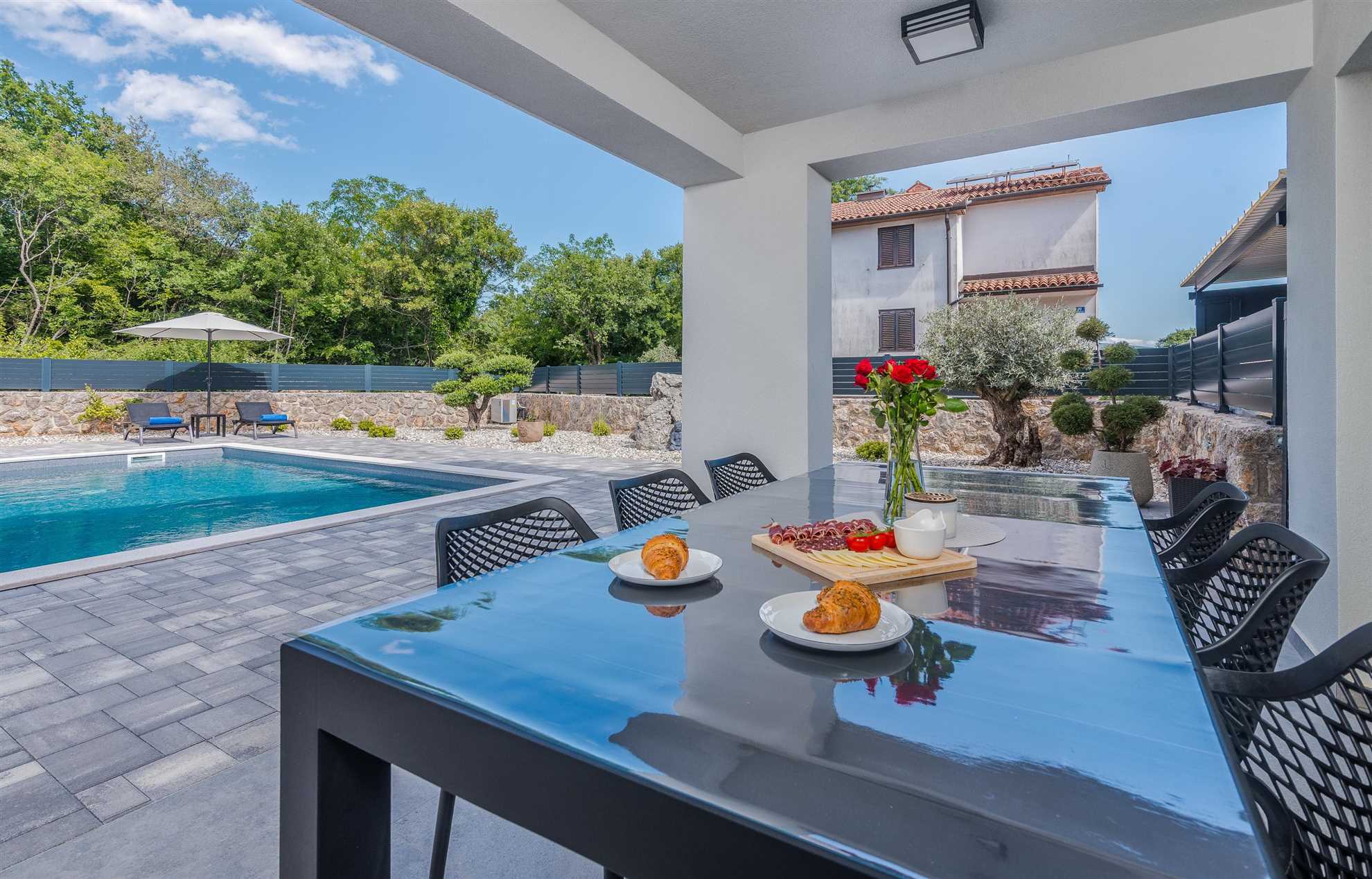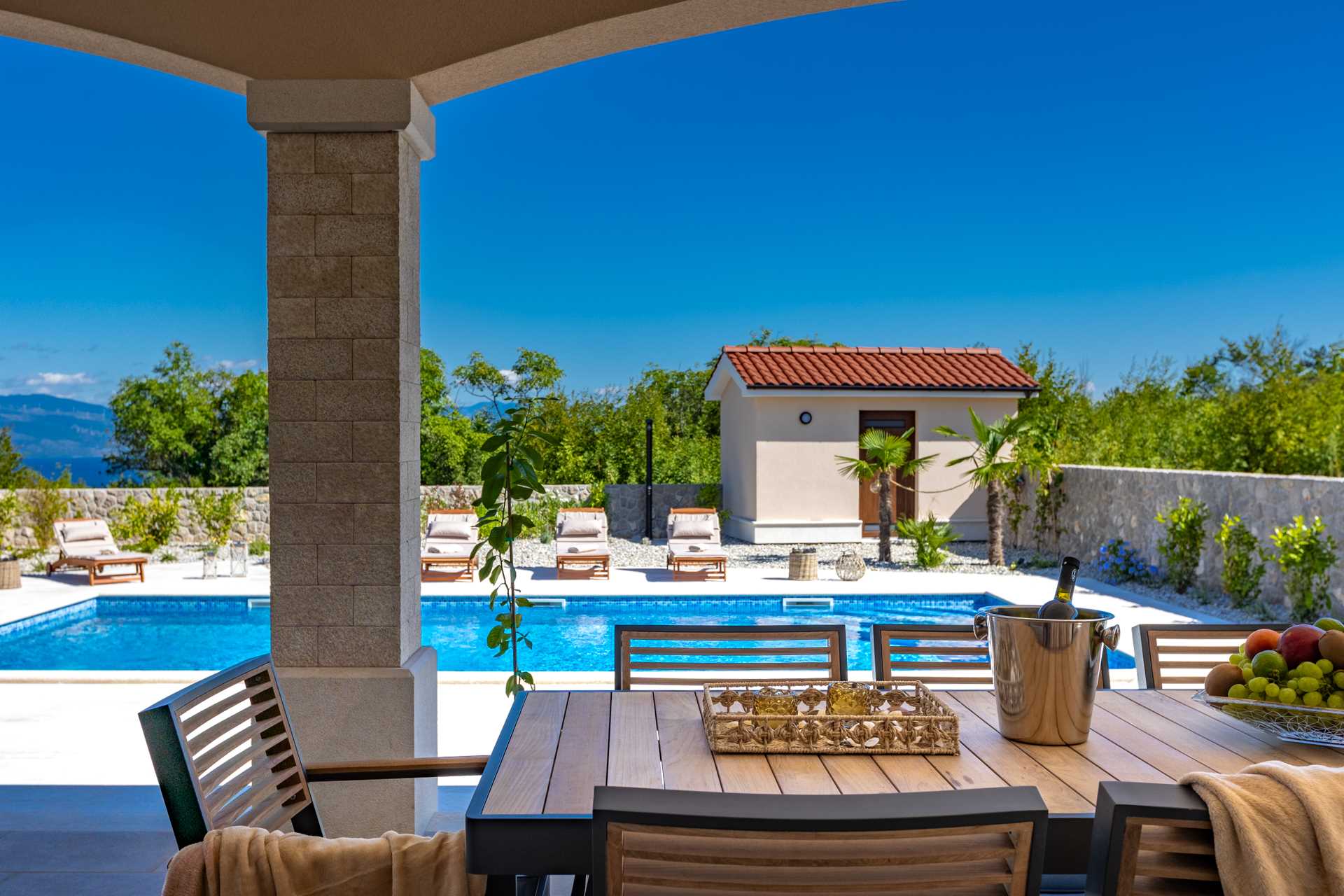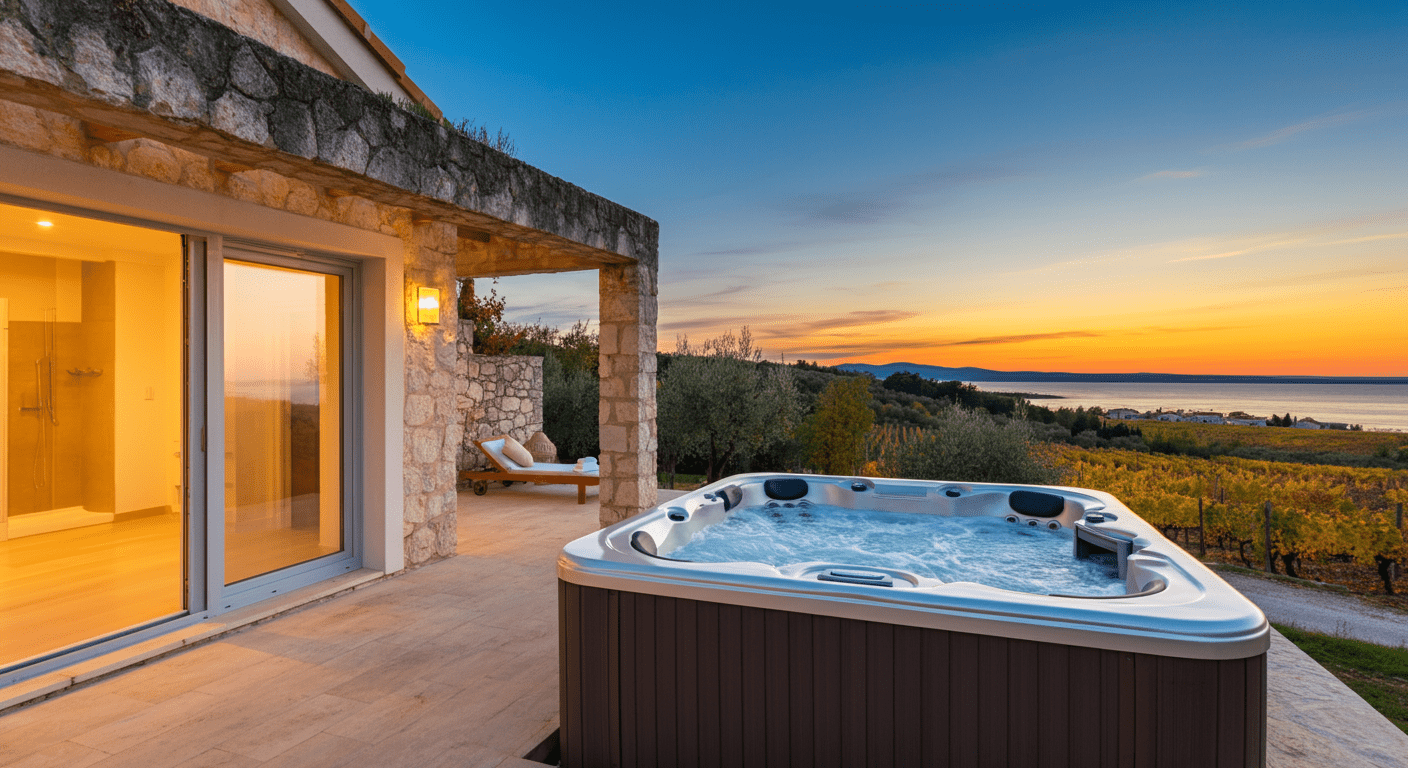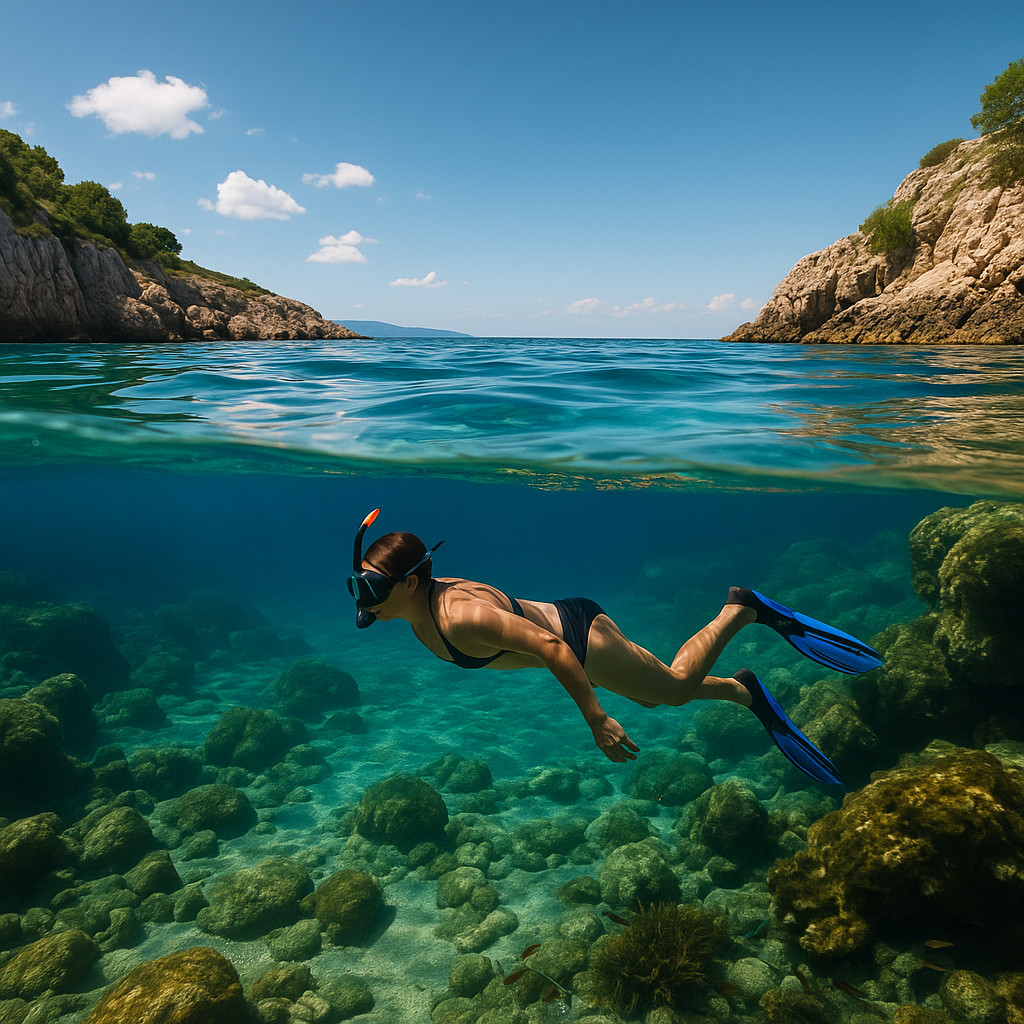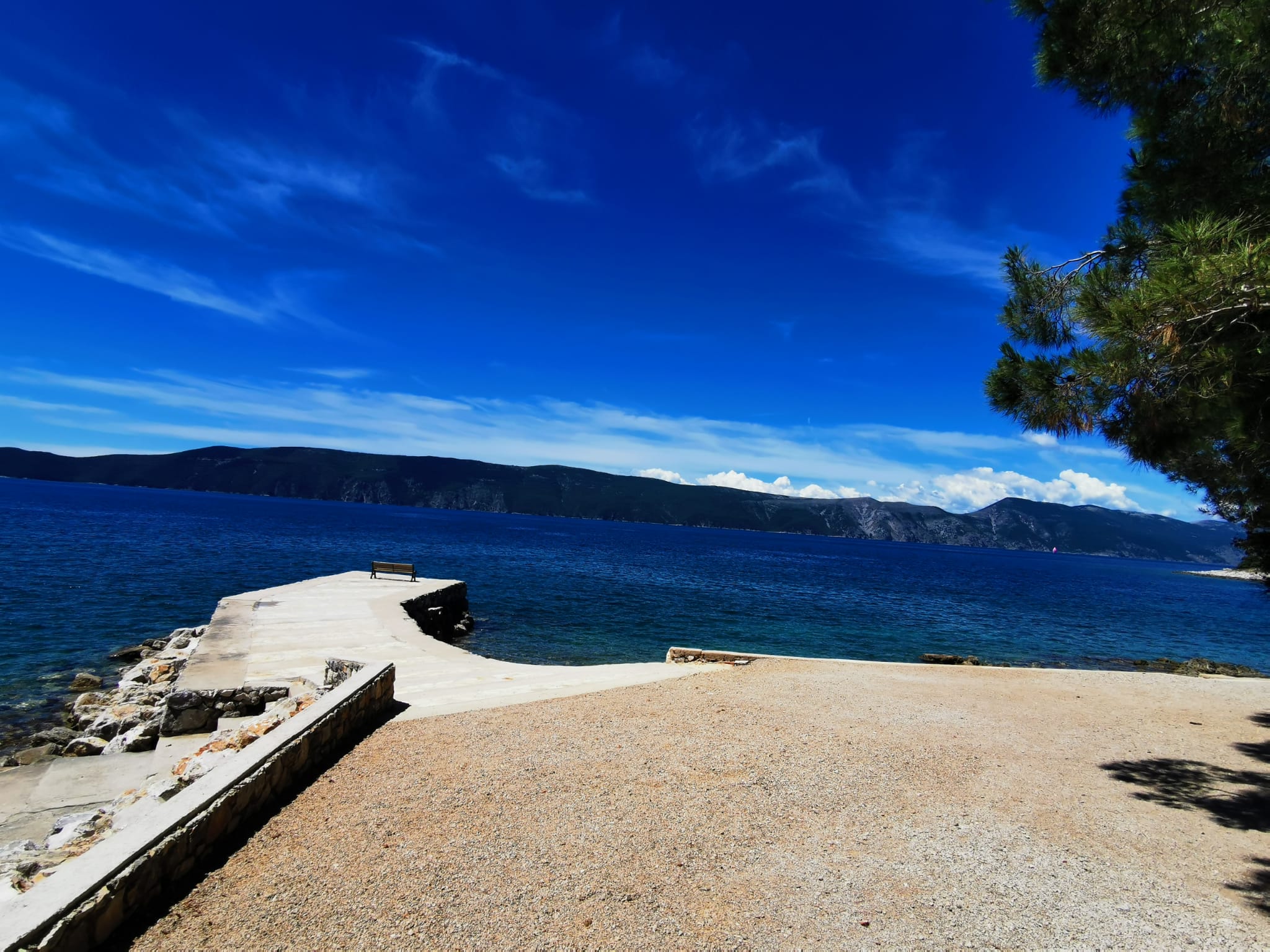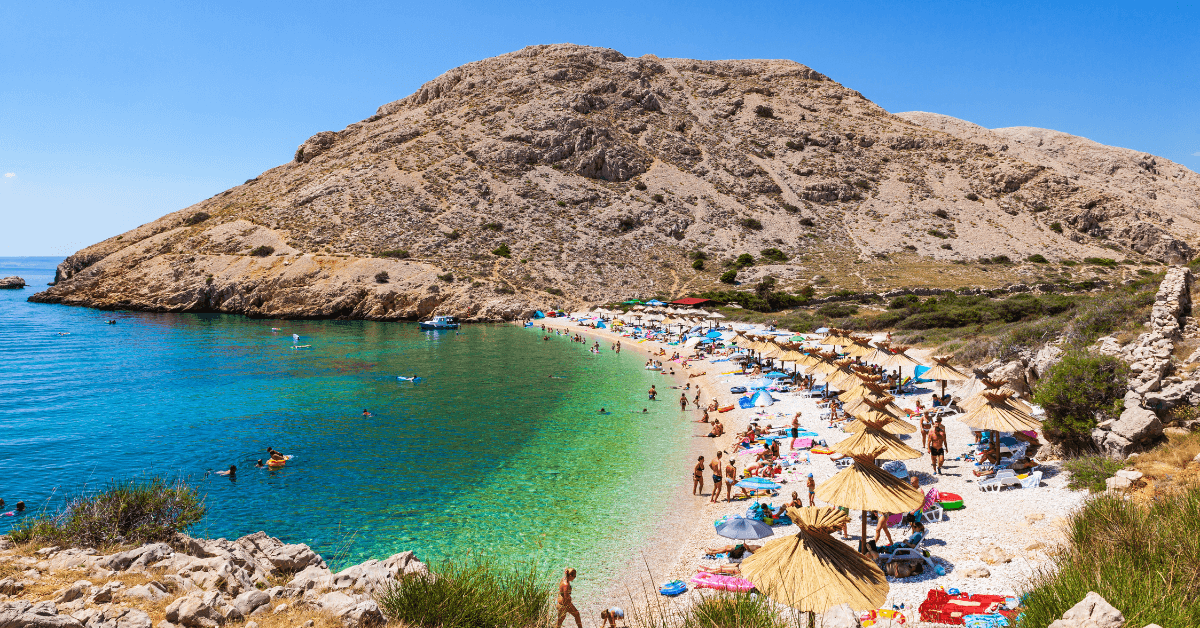Island Krk, located in the Kvarner Bay, is known not only for its beauty but also for its centuries-old tradition of olive growing. Since Roman times, olives have been cultivated on this island, where the climatic conditions and specific soil produce fruits of exceptional quality. Olive oil from Krk is not just a food product, but a part of the island’s identity. Every drop carries a story of people, nature, and history.
The olive groves on Krk are often small, family-owned estates where olives are hand-picked and traditionally processed. This practice ensures that the oil retains its natural characteristics, including antioxidants and a rich aromatic profile.
Krk olive oil is often described as “liquid gold” - not only because of its color, but also due to the value it holds in gastronomy and health. Interestingly, it is precisely the authenticity and local production that give Krk’s oil a high reputation on the market.
History and Tradition of Olive Growing on Krk
Olives have been cultivated on Krk for more than 2,000 years. Even the ancient Greeks and Romans recognized the island’s favorable climate for olive cultivation and oil production. During the Middle Ages, olive groves became an integral part of noble estates and monasteries. Many dry-stone walls and ancient olive groves have been preserved to this day, bearing witness to the island’s centuries-old olive-growing heritage.
A unique feature of Krk is that in some parts of the island, olives are still hand-picked, and the oil is produced through cold pressing, which preserves the full nutritional value and natural aromatic profile.
Microclimate and Terroir of the Island of Krk
The specific microclimate of Krk plays a key role in the quality of its olive oil. The mild influence of the Adriatic Sea, an abundance of sunny days, and the island’s limestone soil create ideal conditions for olive cultivation. These natural features affect the chemical composition of the oil, giving it a distinctive taste and aroma.
In addition to the soil and climate, the location of the olive groves is also important. Groves located closer to the sea often yield olives richer in oil and with a more intense flavor, while those in higher areas may contain more polyphenols, contributing to the oil’s bitterness and spiciness.
Native Olive Varieties of Krk and Their Flavor
Krk is home to indigenous olive varieties such as Debela, Drobnica, Plominka, and Rošulja. Each variety has specific characteristics: Debela is known for its large fruits and resistance to low temperatures, while Drobnica is more sensitive to cold, with smaller fruits but a highly aromatic profile.
These diverse notes make Krk olive oil an ideal addition to many dishes - from salads and pasta to grilled fish and vegetables. What sets Krk oil apart is its balanced flavor, where the spiciness is not overwhelming but develops gradually, with aromas of freshly cut grass, almonds, and artichokes. In gastronomy, it is also valued for its stability during heat treatment, although it is most commonly used fresh - on the plate, as a finishing touch.
Production Process: From Olive to Bottle
The journey of the olive from the tree to a bottle of olive oil on Krk is a process deeply rooted in tradition. Hand harvesting allows for careful picking of fruits at optimal ripeness, directly from the branches. Harvesting takes place from October to December, depending on the variety and weather conditions.
The olives are processed within 24 hours to preserve their nutritional value and the freshness of the oil. The first step in production is cleaning and washing the olives. It is crucial that only ripe and undamaged olives enter the production process to obtain high-quality olive oil. This is followed by cold pressing process that uses no heat or chemicals. This ensures that all beneficial compounds remain in the oil, such as vitamin E, phenols, and unsaturated fatty acids.
After pressing, the oil is filtered and stored in stainless steel barrels, protected from contact with oxygen and light. This preserves the oil’s stability and prevents oxidation. Finally, the oil is bottled in dark glass bottles that further protect its quality.
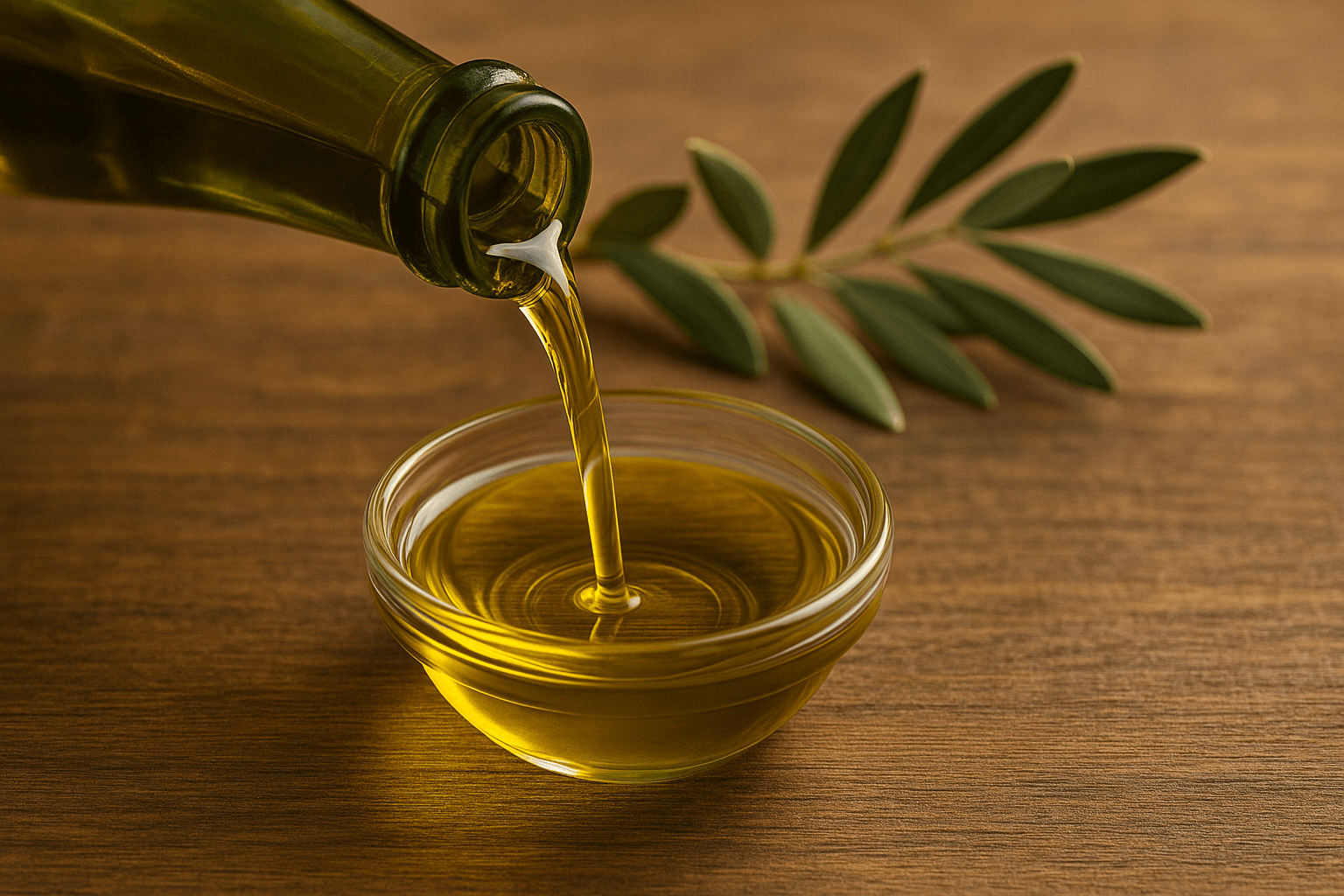
Taste and Characteristics of Krk Olive Oil
Krk olive oil is recognized for its pronounced greenish and golden color and its fresh, herbaceous-fruity aroma. On the palate, it delivers a balanced taste, with a mild bitterness and a spicy finish-characteristics that indicate a high polyphenol content.
Depending on the olive variety and the harvest year, the flavor can range from mildly fruity to intensely grassy, with notes of almond, artichoke, or even tomato. This complexity makes the oil ideal for use in its raw form-for example, on salads, fish, vegetables, or simply with a piece of homemade bread.
Thanks to its high quality, Krk olive oil is often awarded at both national and international competitions.
The Role of Olive Oil in Local Gastronomy
On Krk, olive oil is an essential ingredient in almost every traditional dish. It is used in the preparation of brudet (fish stew), roasted lamb, homemade pasta, and various sauces and marinades. In local taverns, it is often the first thing served, alongside homemade bread, cheese, and prosciutto.
Many families have their own supplies of olive oil, cherished as a family treasure. The oil is also present in desserts-for example, in traditional pastries such as kroštule or fritule. Krk olive oil is not just a culinary addition, but a key part of the island's identity and culture.
Health Benefits of Olive Oil Consumption
The Mediterranean diet, recognized as one of the healthiest in the world, is based on the regular consumption of olive oil. Krk olive oil, due to its high content of oleic acid and antioxidants, helps protect the heart and blood vessels, lowers bad cholesterol, and has anti-inflammatory effects.
Polyphenols present in extra virgin olive oil act as powerful antioxidants that protect cells from oxidative stress. Regular consumption can contribute to better digestion, stronger immunity, and slower aging.
Thanks to its gentle effect on the stomach lining, olive oil is also used for gastritis, acid reflux, and other stomach issues.
Events Related to Olive Growing
Krk hosts several important events dedicated to olives. In autumn, the municipality of Punat organizes the Olive Days, featuring workshops, tastings, and presentations of local products. In spring, the Krk Olive Growers Association holds the “Drobnica Fest,” which includes the evaluation of the best oils and a showcase of local producers.
These events attract both tourists and professionals, and while promoting the island’s products, they also preserve the rich tradition of olive growing. Particularly interesting are the workshops where visitors can learn more about the cultivation, harvesting, and processing of olives.
Sustainable Production and the Future of Olive Growing
Olive cultivation on Krk is increasingly moving toward sustainability. A growing number of producers are switching to organic farming, avoiding the use of pesticides and artificial fertilizers. This not only protects the environment but also ensures the purity and quality of the olive oil, which often carries the label “Extra Virgin Olive Oil from Krk - PDO” (Protected Designation of Origin).
Initiatives to preserve old olive groves and plant new trees, supported by local communities and associations, encourage young people to take up olive growing. Sustainable tourism, through offerings such as olive oil tastings and olive grove tours, further strengthens the local economy.
The future of olive growing on Krk looks bright, with a strong focus on quality, tradition, and environmental care.
Where to Buy and How to Recognize Authentic Krk Olive Oil?
Authentic Krk olive oil is most often found at local family farms (OPGs), markets, fairs, or specialized stores. Some oils carry the Protected Geographical Indication label, which guarantees authenticity and quality.
Packaging in dark bottles, clear labeling of the harvest and processing date, and labels such as “extra virgin” are signs of a quality product. When purchasing, pay attention to the aroma and color-the natural and fresh oil has a grassy scent and a pronounced hue.
It is best stored in a dark, cool place, away from heat and light sources, to preserve its properties.
Accommodation on the Island of Krk – Comfort and Luxury Within Reach
If you're planning your vacation on Krk, we recommend brand-new, modern accommodations that are ideal for families and groups looking to enjoy peace, privacy, and extra comfort.
Holiday Home OLIVE BLUE – Omišalj
This modern house with a private pool and spacious garden is located in Omišalj and can accommodate up to 10 guests. It offers four bedrooms with en-suite bathrooms, a living room, kitchen, separate toilet, and a game room. Guests also have access to an electric vehicle charger.

Holiday Home ANTICA – Lakmartin
House Antica combines traditional architecture with modern amenities and is located in the peaceful village of Lakmartin. It features a heated pool, three bedrooms, three bathrooms, and a spacious outdoor area with a barbecue-perfect for relaxing in nature.
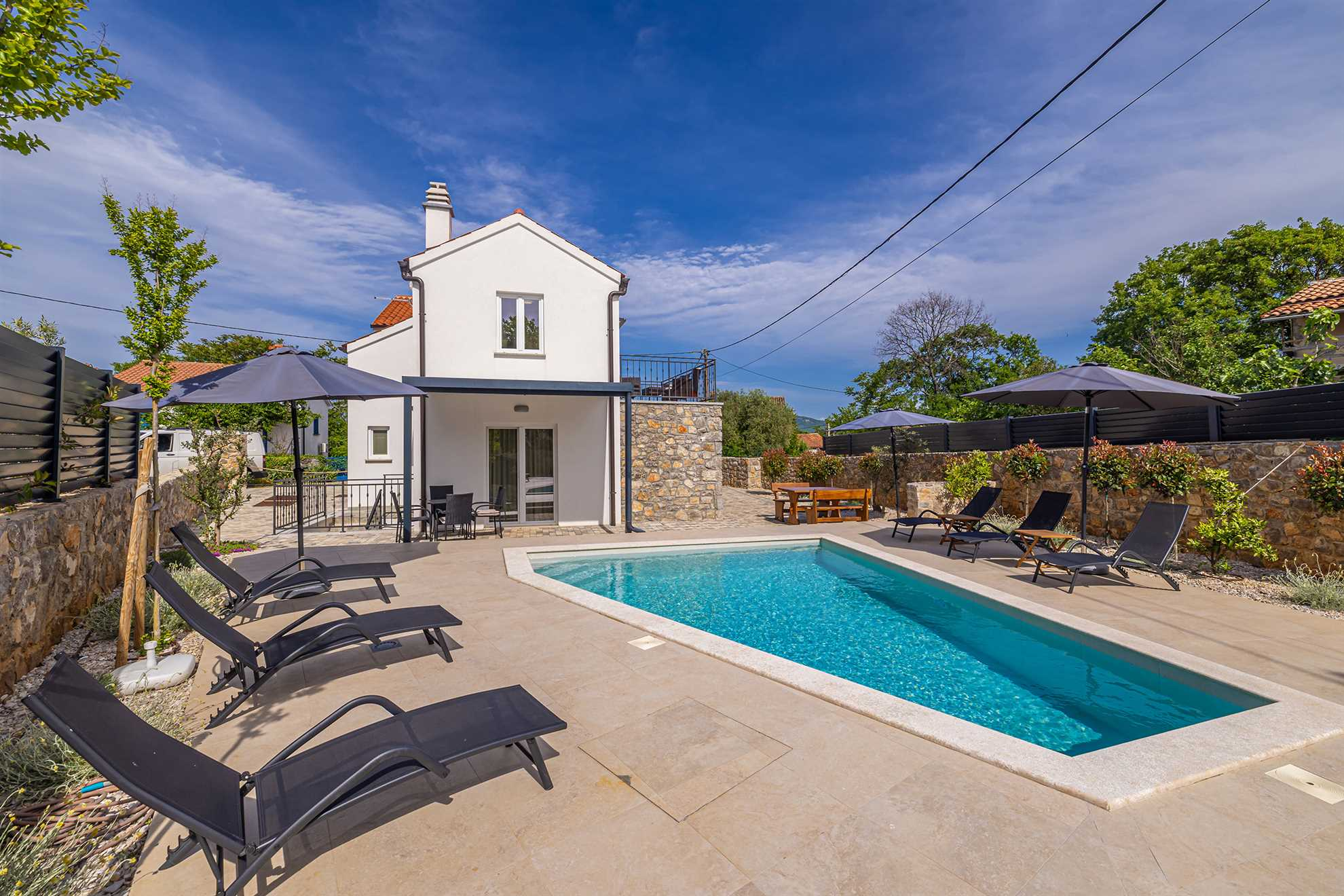
Apartment AQUAVISTA – Malinska
A comfortable apartment for 4–5 people with a private pool, located near the beach in Malinska. It has two bedrooms, a bathroom, an additional toilet, a fully equipped kitchen, and a living room. A parking space is also provided for guests.

Villa SUNSET I – Vrbnik
This luxurious villa with sea views and a heated pool is located near Vrbnik. It includes three bedrooms, two bathrooms, and an additional toilet, a modern kitchen, and a spacious outdoor area for family enjoyment. The villa also offers an electric vehicle charger and parking spaces.
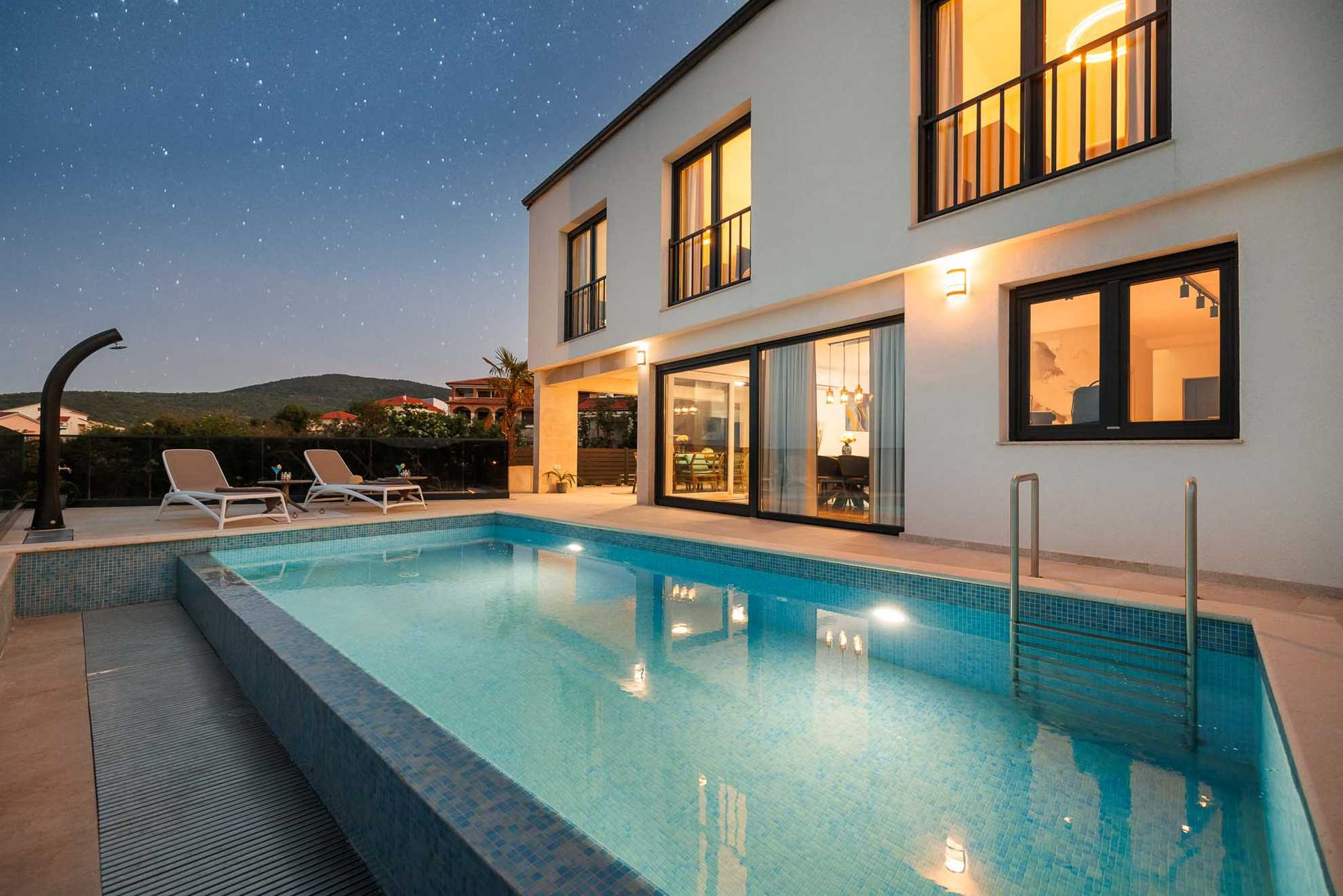
Conclusion
Krk olive oil is not just a food product-it is a symbol of tradition, health, and the Mediterranean way of life. Every drop reflects the effort, knowledge, and love of local olive growers and rightfully earns the name “liquid gold.”
